Molecular Geobiology
Lecturers: Solveig Bühring, Kai-Uwe Hinrichs, Enno Schefuß, Florence Schubotz, Lars-Peter Wörmer
This lecture will provide a comprehensive overview about molecular lines of inquiry in Geobiology and Paleoenvironmental Sciences. Students will learn how these techniques contribute to the exploration of the origins of life as well as the early life on Earth. Applications of molecular biomarkers will be exemplified with case studies from various eras in Earth history. Current research on the diversity of life, its functions in the environment and the limits of life in extreme environments will complement the contents focusing on past life. We will also introduce the concepts and current topics in Astrobiology. We will address fundamental questions such as:
What is life and how did it originate?
How did life function without oxygen and which traces did it leave in the geological record?
How can we recognize and quantify consequences of life such as primary production?
How can the appearance of certain life forms enable conclusions regarding past environmental conditions?
What are the limits of life on Earth and other planets?
What information regarding environmental conditions can we extract from molecules preserved in sediments and rocks?
Students of this course will obtain an overview about current techniques in organic geochemistry, geobiology and molecular biology as these relate to the development and evolution of life on Earth. Additionally, they will be familiar with molecular biomarkers as paleontological tools for studying environmental change. After completion of this lecture, students will be in a position to critically discuss the major geobiological hypotheses regarding geosphere-biosphere interactions through time.
Oral exam of about 30 min length with two of the particpating lecturers.
mündliche Prüfung
Introduction to Geomicrobiology, Kurt Konhauser, Blackwell Publishing
Echoes of Life, Oxford University Press, 2009, selected chapters.
Examples of scientific papers:
Brocks, J. J. Logan, G. A. Buick, R. and Summons, R. E., 1999. Archean molecular fossils and the early rise of eukaryotes. Science 285, 1033-1036.
Eglinton, T. I. and Eglinton, G., 2008. Molecular proxies for paleoclimatology. Earth and Planetary Science Letters 275, 1-16.
Conte, M. H. Sicre, M. A. Rühlemann, C. Weber, J. C. Schulte, S. Schulz-Bull, D. and Blanz, T., 2006. Global temperature calibration of the alkenone unsaturation index (UK`37) in surface waters and comparison with surface sediments . Geochemistry Geophysics Geosystems 7, Q02005.
Rasmussen, B. Fletcher, I. R. Brocks, J. J. Kilburn, M. R. Rasmussen, B. Fletcher, I. R. Brocks, J. J. and Kilburn, M. R., 2008. Reassessing the first appearance of eukaryotes and cyanobacteria. Nature 455, 1101.
1st SWS:
2nd SWS:
3rd SWS:
4th SWS:
5th SWS:
6th SWS:
7th SWS:
8th SWS:
9th SWS:
10th SWS:
11th SWS:
12th SWS:
13th SWS:
14th SWS:
Basic Data
05-MMG-GB2-1
Study Program
Master Marine Geosciences
Module Name
Marine Molecular Geobiology
Course Type
Lecture (L)
First Year of Study
4 CP
4 SWS
Summer Term
Course Language
English
Contact Person
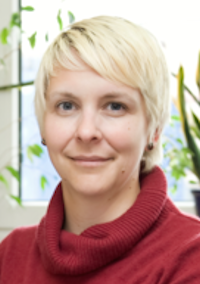
Fachbereich 05: Geowissenschaften
Dr. Florence Schubotz
MARUM Pavillon R
Phone: +49 421 218 - 65724
schubotz uni-bremen.de
uni-bremen.de
Fachbereich 05: Geowissenschaften
Dr. Florence Schubotz
MARUM Pavillon R
Phone: +49 421 218 - 65724
schubotz uni-bremen.de
uni-bremen.deLecturer
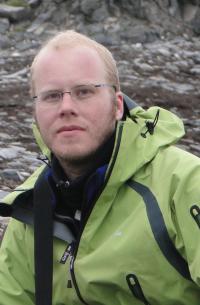
Dr. Lars-Peter Wörmer
MARUM1 2570
Phone: +49 421 218 - 65710
lwoermer marum.de
marum.de
Dr. Lars-Peter Wörmer
MARUM1 2570
Phone: +49 421 218 - 65710
lwoermer marum.de
marum.de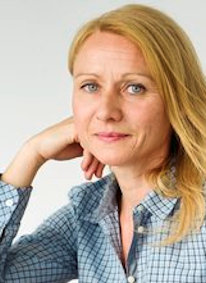
Dr. Solveig Bühring
MARUM Pavillon 1090
Phone: +49 421 218 - 65964
sbuehring marum.de
marum.de
Dr. Solveig Bühring
MARUM Pavillon 1090
Phone: +49 421 218 - 65964
sbuehring marum.de
marum.de
Dr. Florence Schubotz
MARUM Pavillon
Phone: +49 421 218 - 65724
schubotz uni-bremen.de
uni-bremen.de
Dr. Florence Schubotz
MARUM Pavillon
Phone: +49 421 218 - 65724
schubotz uni-bremen.de
uni-bremen.de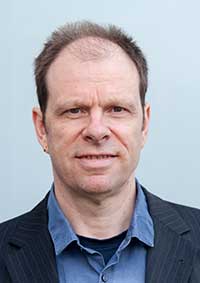
Prof. Dr. Kai-Uwe Hinrichs
MARUM1 2600
Phone: +49 421 218 - 65700
khinrichs uni-bremen.de
uni-bremen.de
Prof. Dr. Kai-Uwe Hinrichs
MARUM1 2600
Phone: +49 421 218 - 65700
khinrichs uni-bremen.de
uni-bremen.de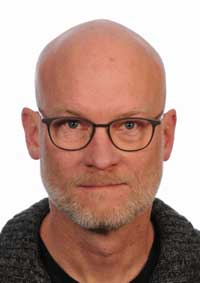
Dr. Enno Schefuß
MARUM1 1170
Phone: +49 421 218 - 65526
schefuss uni-bremen.de
uni-bremen.de
Dr. Enno Schefuß
MARUM1 1170
Phone: +49 421 218 - 65526
schefuss uni-bremen.de
uni-bremen.de
